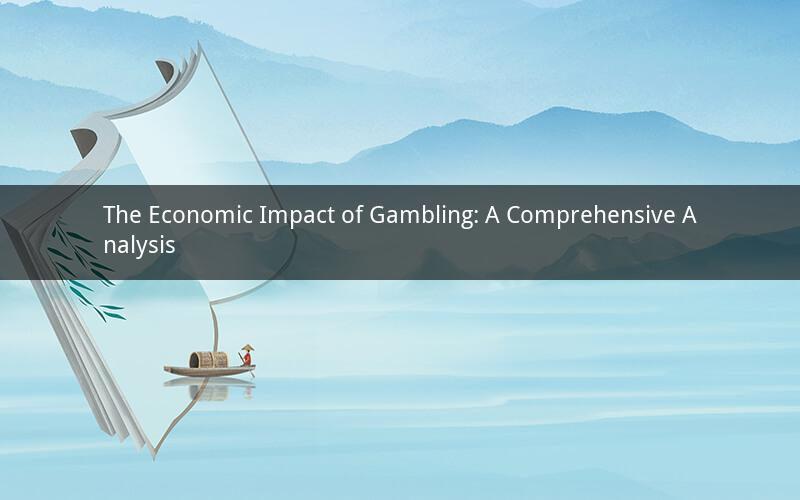
Gambling has long been a contentious topic, with many debates focusing on its potential benefits and drawbacks. One of the most frequently discussed aspects is whether gambling is bad for the economy. This essay aims to explore the economic impact of gambling, providing a comprehensive analysis from various perspectives.
The Economic Benefits of Gambling
Gambling has been found to generate significant revenue for governments and contribute positively to the economy. One of the main economic benefits is job creation. Casinos, racetracks, and lottery operations require a large workforce, ranging from casino floor staff to administrative and managerial positions. Additionally, the construction and maintenance of gambling facilities provide employment opportunities for workers in various sectors.
Furthermore, gambling attracts tourists, boosting the tourism industry. Casinos, in particular, have become popular tourist destinations, with visitors spending money on accommodation, dining, and entertainment. This increased tourist traffic can lead to the development of other businesses and infrastructure, further enhancing the local economy.
Another economic benefit of gambling is tax revenue. Governments around the world have realized the potential of gambling as a source of revenue, imposing taxes on gambling operations. These tax revenues can be used to fund public services, reduce budget deficits, and invest in infrastructure and social programs.
The Economic Drawbacks of Gambling
Despite its economic benefits, gambling has also been associated with several negative economic impacts. One of the most significant drawbacks is the potential for addiction. Problem gambling can lead to financial difficulties, job loss, and even bankruptcy, which can have a ripple effect on the economy. Families may face financial strain, and individuals may be unable to contribute to the workforce, resulting in decreased economic productivity.
Moreover, the cost of gambling addiction to society can be substantial. The healthcare system may bear the brunt of treating gambling-related issues, including mental health problems and substance abuse. These costs can strain government budgets and reduce funds available for other essential services.
In addition to addiction, gambling can lead to social problems. For example, crime rates may increase in areas with a high concentration of gambling facilities. This can result in higher law enforcement costs and a decrease in the overall quality of life for residents.
The Economic Impact on Communities
The economic impact of gambling can vary significantly from one community to another. While some communities may experience positive economic benefits, others may suffer negative consequences.
Communities with a strong tourism industry, such as Las Vegas or Monte Carlo, may benefit greatly from gambling. However, smaller communities may face negative social and economic impacts, as gambling facilities can lead to increased crime rates, traffic congestion, and a decline in property values.
Furthermore, the concentration of gambling facilities in certain areas can lead to uneven economic development. While some communities may thrive, others may experience economic decline and social problems.
The Role of Government Regulation
Governments play a crucial role in regulating the gambling industry to minimize its negative economic impacts. By implementing strict regulations and oversight, governments can ensure that gambling operations are conducted responsibly and contribute positively to the economy.
Regulations can include age restrictions, limits on advertising, and the requirement for gambling operators to contribute to community development initiatives. Additionally, governments can invest in research and public awareness campaigns to help prevent gambling addiction and mitigate its economic and social consequences.
In Conclusion
The economic impact of gambling is a complex issue, with both positive and negative aspects. While gambling can generate significant revenue, create jobs, and boost tourism, it can also lead to addiction, social problems, and economic strain. Governments must strike a balance between maximizing the economic benefits of gambling and mitigating its negative consequences through effective regulation and oversight.
Questions and Answers:
1. What are the primary economic benefits of gambling?
Gambling generates significant revenue for governments, creates jobs, and attracts tourists, contributing to the tourism industry.
2. How can problem gambling affect the economy?
Problem gambling can lead to financial difficulties, job loss, and bankruptcy, resulting in decreased economic productivity and increased healthcare costs.
3. What are some potential social problems associated with gambling?
Gambling can lead to increased crime rates, traffic congestion, and a decline in property values, as well as social issues such as addiction and family strain.
4. How can governments regulate the gambling industry to minimize negative economic impacts?
Governments can implement strict regulations, impose age restrictions, limit advertising, and require gambling operators to contribute to community development initiatives.
5. Can gambling ever have a positive impact on a community with a high concentration of gambling facilities?
Yes, communities with a strong tourism industry, such as Las Vegas, can benefit greatly from gambling. However, it is crucial to address potential negative social and economic impacts through responsible regulation and community support.